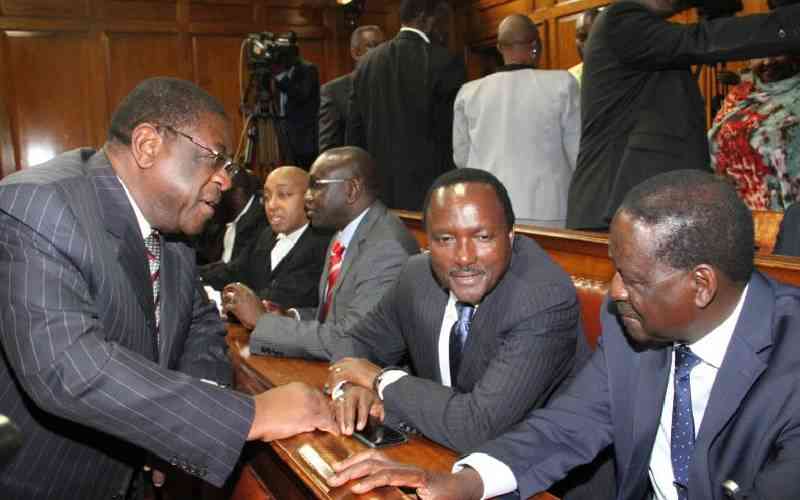×
The Standard e-Paper
Fearless, Trusted News

As the clock ticks towards the deadline of filing a presidential election petition, the focus is shifting to the Supreme Court which will be the centre of battle for the next fourteen days.
Azimio la Umoja One Kenya has promised a bruising battle to overturn the declaration of President-elect William Ruto arguing that they have evidence to prove the Independent Electoral and Boundaries Commission (IEBC) manipulated the votes to deny Raila Odinga victory.